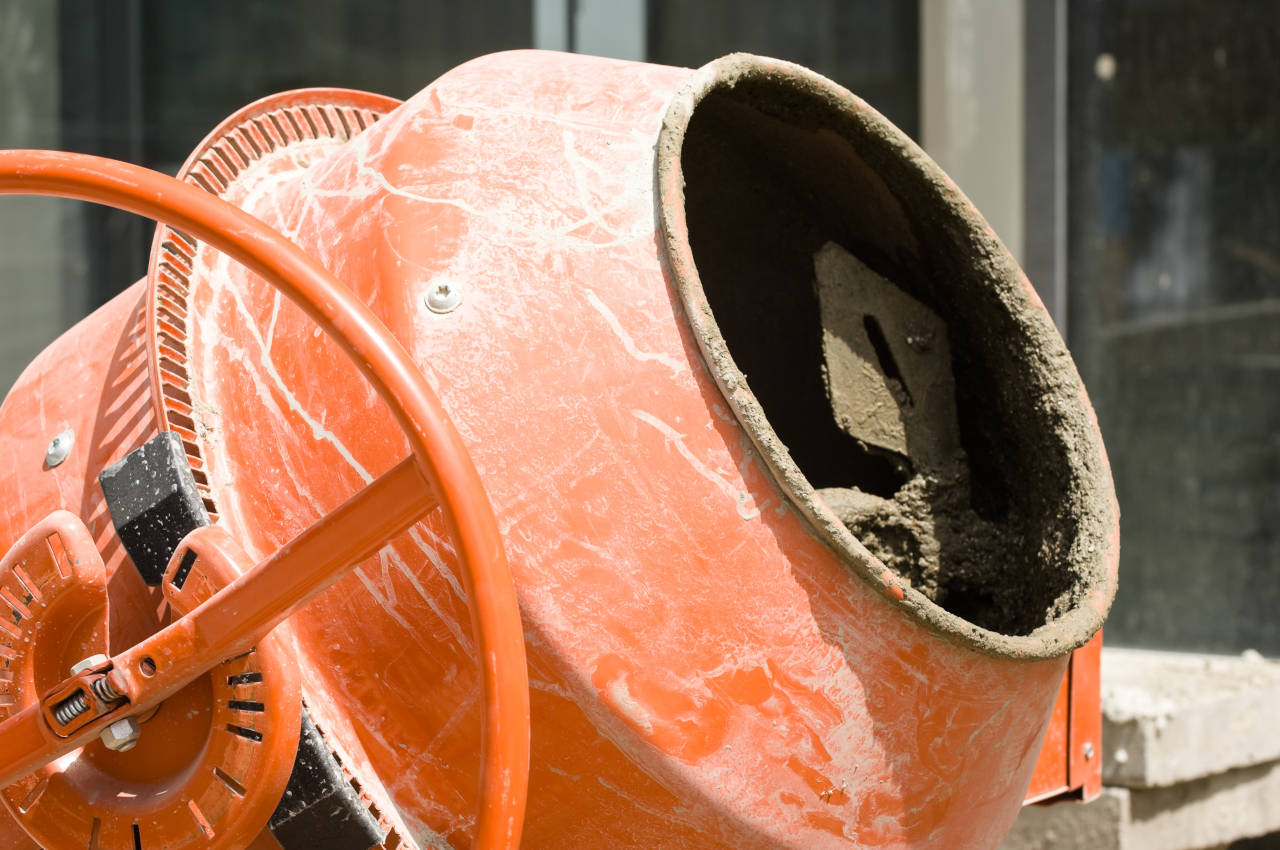Block Mortar Calculator
Enter the number of bricks or blocks below to calculate how many bags of mortar will be needed, or how much materials will be needed to mix on-site.
On this page:
How to Estimate Mortar for Block Projects
Mortar needs to be mixed in precise amounts to ensure it’s always at the right consistency, so it’s important to estimate the correct amount for your overall project.
Follow three easy steps to estimate the amount of pre-mixed mortar needed for your concrete block project. Note that this process is a bit different than calculating a concrete mix.

Step One: Estimate Square Footage
Estimate the square footage of the wall by measuring the width and height in feet. Then, multiply the width and height to find the square footage. Try calculating square footage using a calculator if you’re not comfortable doing it by hand.
Step Two: Calculate the Number of Blocks
Next, calculate the number of blocks needed for the project by the number of blocks per square foot. A concrete block has a nominal size of 8″ x 16″ on the face, and may have widths or depths of 4″, 6″, 8″, 10″, 12″, 14″, or 16″.
The typical block is 8″ but 6″ is also very common. Most mortar estimates are based on an 8″ measurement.
An 8″ x 16″ block is roughly .89 of a square foot, so you’ll need roughly 1 1/8 standard blocks per square foot, so multiply the square footage by 1.125 to estimate the total needed. You can also use our block calculator to calculate other block sizes.
Step Three: Estimate Mortar
The final step will be to find the yield of the mortar you’re using and divide the total number of blocks by the yield. Each brand of pre-mixed mortar can cover a different number of blocks, depending on the formula used by the manufacturer.
This can vary, but a general rule of thumb is 12 blocks for an 80-pound bag of mortar. Keep in mind that this will vary, though, so always check the yield from the brand you want to use.
Once you have the yield, divide the square footage of the area by the number of blocks the mortar will cover to get the number of bags of mortar necessary.
Below is the average number of bags needed, assuming a yield of 12 blocks per 80-pound bag, assuming an average block size of 8″ x 16″ x 8″. Remember to always get the exact yield from the brand you choose to get the most accurate number.
| Block Quantity | 60 lb Bags | 80 lb Bags |
|---|---|---|
| 100 blocks | 12 bags | 9 bags |
| 200 blocks | 23 bags | 17 bags |
| 300 blocks | 34 bags | 25 bags |
How to Estimate Mortar for Brick Projects
The same three steps above can be used to estimate mortar for brick projects.
Step One: Estimate Square Footage
Start by estimating the square footage of the brick wall by multiplying the width by the height together.
Step Two: Calculate the Number of Bricks
Then, calculate the number of bricks by multiplying the square footage by the number of bricks per square foot. Our brick calculator can help with this. You’ll need roughly 6.55 modular bricks per square foot, assuming an average brick size of 2 ¼” x 8″ with a depth of 3 5/8“, including the mortar between the bricks, so multiply 6.55 times the square footage to find the number of bricks needed.
Step Three: Estimate Mortar
Finally, estimate the mortar needed by dividing the total number of bricks by the yield of the mix used. On average, a mortar mix will yield 36 bricks per 80-pound bag, so divide the total number of bricks by 36 to calculate the bags needed.
As with the blocks, keep in mind that the number of bags will change by manufacturer, and can also change depending on the exact size of the bricks used. Larger bricks will require less mortar than smaller bricks.
| Brick Quantity | 60 lb Bags | 80 lb Bags |
|---|---|---|
| 500 bricks | 19 bags | 14 bags |
| 1,000 bricks | 38 bags | 28 bags |
| 1,500 bricks | 56 bags | 42 bags |
How to Estimate by Volume
A more accurate way to determine the amount of mortar needed is by volume. This will take into account the exact size of each block, and will give you a more accurate number of blocks for the project with mortar spacing as well.
Begin by getting the length, width, and depth of the wall and the length, width, and depth of the blocks.
Multiply the length, depth, and width of the wall to get the total cubic footage of the wall.
For example, if the wall will be 14′ by 10′ with an 8″ thickness, we would multiply these together to get:
14′ × 10′ × 0.67′ (8″) = 93.24 cu ft
Now get the cubic footage of the blocks. If the blocks used are 8″ x 16″ x 8″, this would be:
0.666′ (8″) × 1.33′ (16″) × 0.666′ (8″) = 0.59 cu ft
Now we need the volume of one block with mortar, assuming that 1″ of mortar will be applied to the block’s measurements.
0.75′ (8″ + 1″) × 1.42′ (16″ + 1″) × 0.666′ (8″) = 0.71 cu ft
To get the most accurate number of blocks, divide the volume of the wall by the volume of one block with mortar.
93.24 cu ft ÷ 0.71 cu ft = 131 blocks
Multiply the number of blocks by the volume of one block without mortar to get the volume of the blocks.
131 × 0.59 = 77.29 cu ft
To get the volume of mortar, subtract the volume of the blocks from the volume of the total wall.
93.24 – 77.29 = 15.95 cu ft
This is the wet volume of mortar needed. Because the volume of mortar is actually 33% less when water is added, we need to convert from a wet volume to a dry one. To get this, multiply the volume of the mortar by 1.33.
15.95 × 1.33 = 21.21 cu ft
So, 21.21 cubic feet of dry mortar mix is required for this job.
A bag of mortar contains roughly 0.88 cubic feet, so find the number of bags by multiplying by the volume of mix needed.
0.88 × 21.21 = 18.66 bags
You can round the result up to the nearest full bag. So for a job of this size, 19 bags of mortar would be needed.
Types of Mortar
Whether you’re using a pre-mixed mortar or mixing on-site, it’s important to understand the various types there are and which is appropriate for your project. Cement to sand ratio ranges from 1 part cement to 3 to 4.5 parts sand, depending on the type of mortar being mixed and the compressive strength desired.
Most mixes also require the use of lime in various proportions as a binding agent to increase the longevity of the finished product and to increase the workability of the mix.
The most common types of mortar are:
- Type O:
- Used in above-ground applications that are not load-bearing, usually for interior applications, and has a compressive strength of 350psi.
- Type N:
- Used in above-ground applications that support light loads, usually for chimneys or brick-work, and has a compressive strength of 750psi.
- Type S:
- Used in below-ground applications for load-bearing applications, usually for foundations and retaining walls, and has a compressive strength of 1,800psi.
- Type M:
- Used in below-ground applications for heavier load-bearing applications, usually for foundations to support, and has a compressive strength of 2,500psi.
| Mortar Type | Cement : Lime : Sand Ratio | Compressive Strength |
|---|---|---|
| Type O | 1:2:9 | 350 psi |
| Type N | 1:1:6 | 750 psi |
| Type S | 2:1:9 | 1,800 psi |
| Type M | 3:1:12 | 2,500 psi |
Try our other gravel calculator to estimate the amount of sand needed for your mix.




